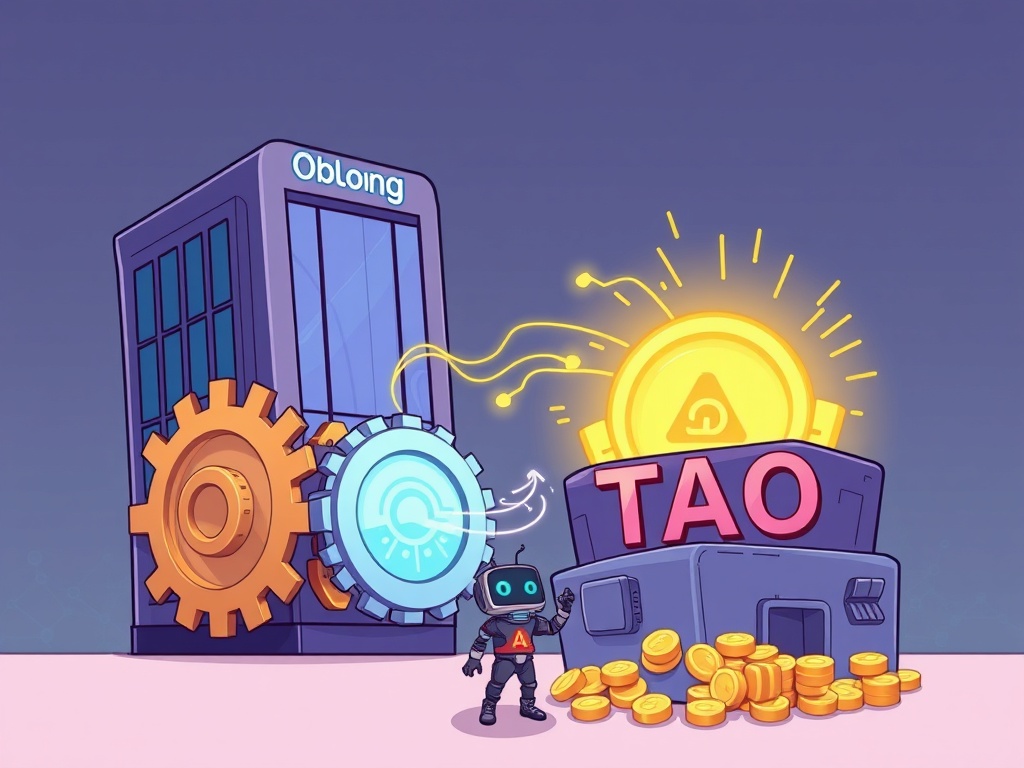BitcoinWorld

ASIC Block Earner Appeal: Crucial Battle Over Crypto’s Legal Fate in Australia
Australia’s financial watchdog, the Australian Securities and Investments Commission (ASIC), is escalating its legal fight with fintech firm Block Earner. The core of the dispute? Whether Block Earner’s crypto-linked fixed-yield product qualifies as a financial product under Australian law. This isn’t just a technicality; the outcome of the ASIC Block Earner case could have significant ramifications for the entire landscape of Crypto Regulation Australia.
The regulator is now seeking permission from the High Court of Australia to appeal a previous Federal Court ruling that sided with Block Earner on this specific point. Why is ASIC pushing so hard? They believe the definition of a financial product needs clarification, especially concerning interest-bearing crypto products and asset conversions, to ensure consistent regulation across traditional and digital finance.
Understanding the ASIC Block Earner Legal Challenge
At its heart, the ASIC Block Earner case is about applying existing laws, specifically the Corporations Act, to new technologies like cryptocurrencies and decentralized finance (DeFi) products. Block Earner offered products that allowed users to earn yield on crypto assets, presenting them in a way that ASIC argued resembled traditional financial products requiring specific licenses and consumer protections.
ASIC’s initial action against Block Earner alleged that the company offered unlicensed financial products. However, the Federal Court delivered a mixed judgment in February 2024, finding that while one of Block Earner’s products (which involved transferring funds to a third party) did constitute a managed investment scheme, another key product – the fixed-yield offering – did not meet the legal definition of a financial product, a managed investment scheme, or a derivative under the Corporations Act.
This latter finding is the specific point ASIC is now challenging at the highest level. ASIC contends that the legal definition of a ‘financial product’ is intended to be broad and technology-neutral. They argue that ignoring crypto yield products simply because they use blockchain technology would create regulatory gaps, potentially exposing consumers to risks without the safeguards associated with regulated financial services.
Why the Financial Product Definition Matters for Crypto Regulation Australia
The legal classification of crypto products is perhaps the single most important factor determining how they are regulated. If a crypto product is deemed a ‘financial product’, it immediately falls under ASIC’s jurisdiction and is subject to stringent requirements, including:
- Licensing obligations for the provider (e.g., holding an Australian Financial Services Licence – AFSL).
- Disclosure requirements (e.g., providing Product Disclosure Statements – PDS).
- Consumer protection rules (e.g., dispute resolution mechanisms, design and distribution obligations).
- Ongoing compliance and reporting to ASIC.
Conversely, if a crypto product is found *not* to be a financial product, it currently operates in a less regulated space under existing Australian law. This is where the tension lies. Industry participants often argue that applying traditional financial regulations too strictly can stifle innovation, while regulators like ASIC emphasize the need for consumer protection and market integrity, regardless of the underlying technology.
The Federal Court’s ruling on Block Earner’s fixed-yield product suggested that simply offering a return on an asset, even if it involves converting that asset or using it in a yield-generating mechanism, didn’t automatically trigger the ‘financial product’ label in that specific context. ASIC clearly disagrees and sees this as a critical point that needs definitive resolution from the High Court to provide clarity for the entire sector and guide future Crypto Regulation Australia efforts.
The Block Earner Ruling and Its Implications for Australian Crypto Law
The Federal Court’s decision in April 2024, while a partial victory for ASIC on one product, was a significant moment for the industry, particularly regarding the fixed-yield offering. The court dissected the specific features of Block Earner’s product against the definitions in the Corporations Act.
Key aspects the court considered likely included the nature of the user’s investment, the level of control they retained (or didn’t retain) over their assets, how the yield was generated, and the specific contractual terms. The finding that the fixed-yield product did not fit the existing legal definitions highlighted the challenges of fitting novel crypto models into traditional legal boxes.
For proponents of innovation, this ruling was seen as a positive sign that not every crypto activity would be automatically shoehorned into existing regulatory frameworks designed for different asset classes and structures. However, for ASIC and those focused on consumer protection, it signaled a potential gap in Australian Crypto Law where certain products could operate without robust oversight.
ASIC’s appeal to the High Court is a direct response to this perceived gap. They are essentially asking the highest court to determine if the Federal Court interpreted the existing law correctly and, crucially, whether the existing law’s ‘technology-neutral’ intent should encompass products like Block Earner’s fixed-yield offering, regardless of the technology used.
What’s at Stake in the High Court?
The High Court’s decision on whether to grant leave to appeal, and subsequently its final ruling if leave is granted, will be a landmark moment for Australian Crypto Law. Here’s what’s at stake:
- Regulatory Certainty: A definitive ruling on the Financial Product Definition in the context of crypto yield products will provide much-needed clarity for both businesses and consumers.
- ASIC’s Authority: The outcome will clarify the extent of ASIC’s powers and jurisdiction over certain types of crypto assets and services under the current law.
- Future Legislation: The ruling could influence how future dedicated crypto regulatory frameworks are designed in Australia. If the court finds existing law is insufficient, it could accelerate calls for new legislation.
- Industry Innovation vs. Consumer Protection: The decision will implicitly weigh the balance between fostering innovation in the fintech sector and ensuring adequate protection for individuals participating in the crypto market.
- Global Precedent: While specific to Australian law, the High Court’s reasoning in applying traditional legal concepts to novel crypto structures could be observed by regulators and courts in other jurisdictions grappling with similar issues.
This case isn’t just about Block Earner; it’s a test case for how flexible and applicable Australia’s current financial regulations are to the rapidly evolving world of crypto and DeFi.
Challenges and Actionable Insights
Regulating crypto yield products presents unique challenges. Unlike traditional bank deposits or bonds, the underlying mechanisms can be complex, involving smart contracts, liquidity pools, and various blockchain protocols. Determining who is responsible for what, how risk is managed, and how to ensure transparency are significant hurdles for any regulatory framework.
For businesses operating in the Australian crypto space, the ASIC Block Earner case underscores the ongoing regulatory uncertainty. Actionable insights include:
- Seek Legal Counsel: Obtain expert legal advice on the classification of your specific products and services under current Australian Crypto Law.
- Monitor Developments: Stay closely informed about the progress of the Block Earner appeal and any other regulatory or legislative updates.
- Engage with Regulators: Where possible, engage constructively with ASIC and policymakers to help shape future regulations.
- Prioritize Transparency: Regardless of legal classification, clearly communicate risks and product mechanics to users.
For consumers, the case highlights the importance of understanding what you are investing in. Just because a product offers a high yield doesn’t mean it has the same protections as a traditional bank account or regulated investment product. Always do your own research and understand the risks involved.
Conclusion: A Defining Moment for Australian Crypto Law
ASIC’s decision to seek leave to appeal the Block Earner Ruling to the High Court signals the regulator’s determination to bring clarity and consistency to Crypto Regulation Australia. The case hinges on the fundamental question of whether certain crypto products, particularly those offering yield, fit within the existing Financial Product Definition under Australian law. The High Court’s eventual decision, if it chooses to hear the case, will not only impact Block Earner but will set a significant precedent for the entire industry, shaping the future trajectory of Australian Crypto Law for years to come. This crucial legal battle is one that everyone involved in the Australian crypto ecosystem will be watching closely.
To learn more about the latest crypto market trends, explore our article on key developments shaping Bitcoin institutional adoption.
This post ASIC Block Earner Appeal: Crucial Battle Over Crypto’s Legal Fate in Australia first appeared on BitcoinWorld and is written by Editorial Team





